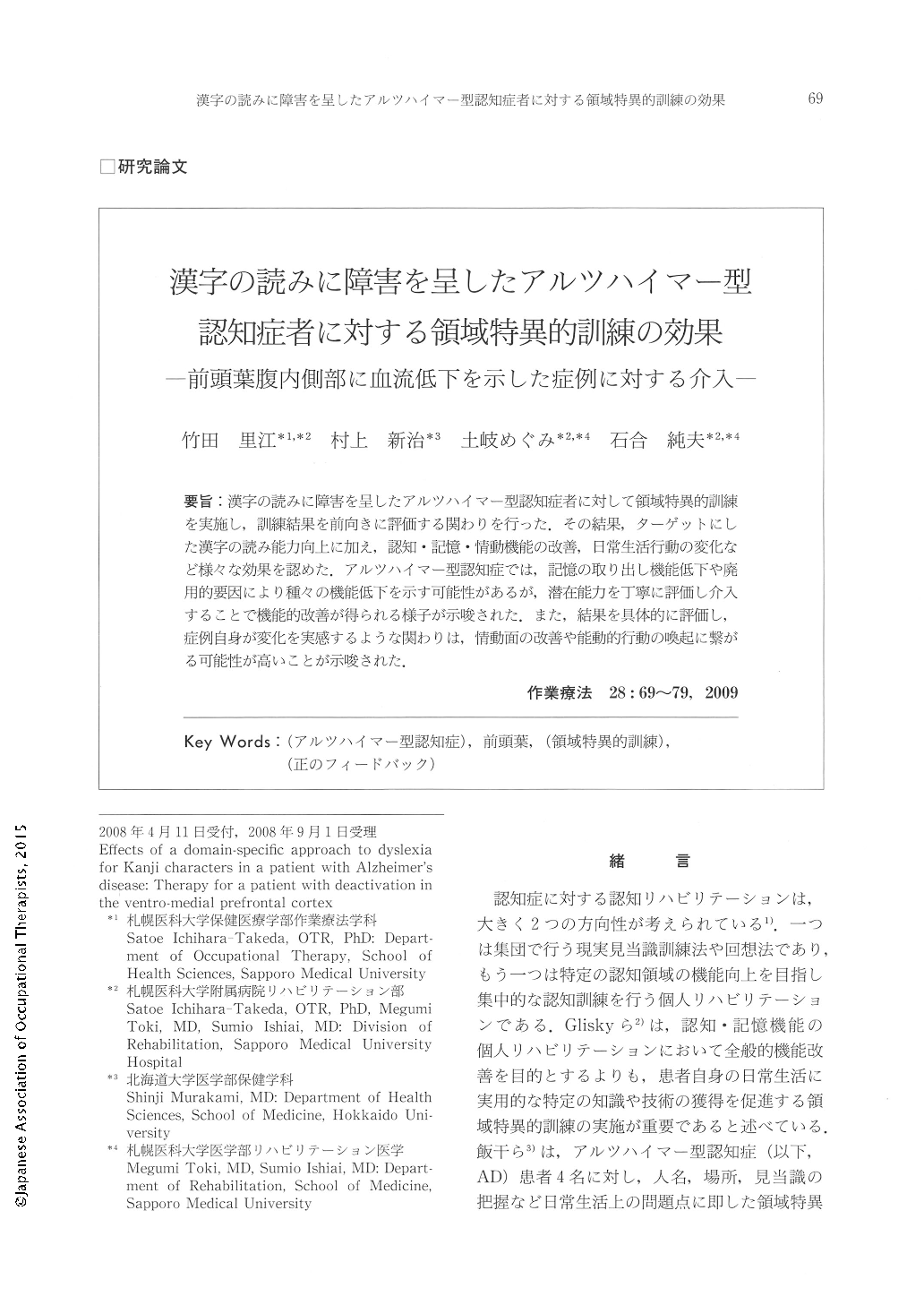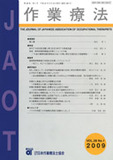Japanese
English
- 販売していません
- Abstract 文献概要
- 1ページ目 Look Inside
- 参考文献 Reference
- サイト内被引用 Cited by
要旨:漢字の読みに障害を呈したアルツハイマー型認知症者に対して領域特異的訓練を実施し,訓練結果を前向きに評価する関わりを行った.その結果,ターゲットにした漢字の読み能力向上に加え,認知・記憶・情動機能の改善,日常生活行動の変化など様々な効果を認めた.アルツハイマー型認知症では,記憶の取り出し機能低下や廃用的要因により種々の機能低下を示す可能性があるが,潜在能力を丁寧に評価し介入することで機能的改善が得られる様子が示唆された.また,結果を具体的に評価し,症例自身が変化を実感するような関わりは,情動面の改善や能動的行動の喚起に繋がる可能性が高いことが示唆された.
Domain-specific approach to dyslexia for Kanji characters was introduced to a patient with Alzheimer's disease. In this approach, the patient practiced reading and writing Kanji characters intensively and the improvement was fed back into the patient. As a result, the functional improvements were observed not only in the function of reading of Kanji characters but also various aspects such as cognition, memory, mentality and daily life functions. Patients in the early stage of Alzheimer's disease sometimes exhibited amnesia or difficulties in retrieving memory. These problems may contribute to various dysfunctions. Our results suggest that the domain-specific approach in reading Kanji characters activated the capability of the operation of Kanji characters and prevented disuse. These results also suggest that the patient's recognition of the improvement may contribute to their motivation. These approaches may also contribute to the prevention of serious Alzheimer's disease.

Copyright © 2009, Japanese Association of Occupational Therapists. All rights reserved.


